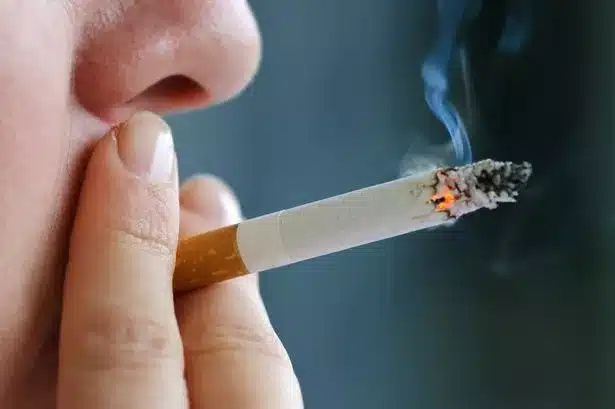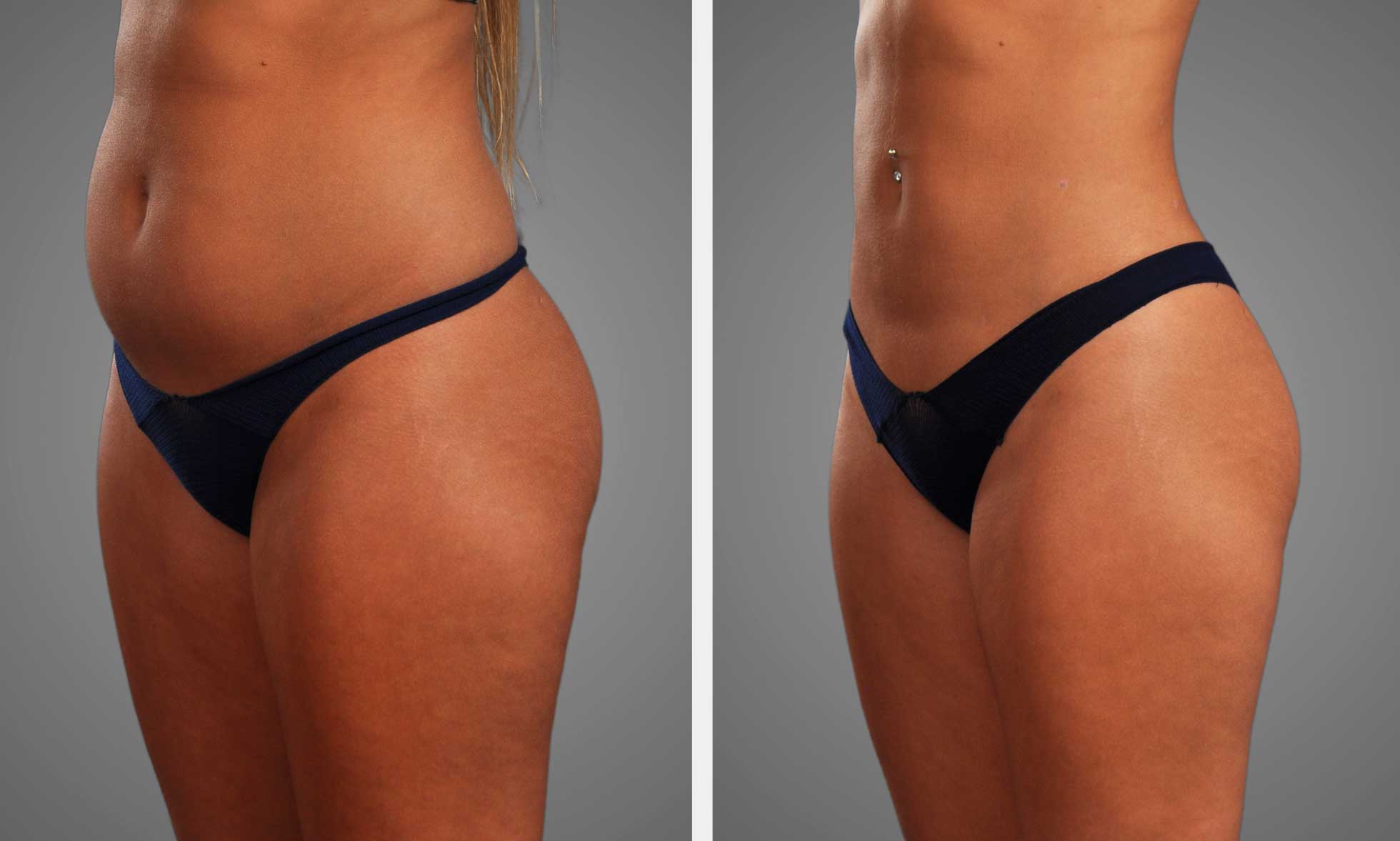Smoking has a significant impact on BBL (Brazilian Butt Lift) outcomes. Many believe that surgery alone guarantees great results for bbl patients, but smoking and nicotine can sabotage success by affecting blood circulation and increasing operative complications. It restricts blood flow, slows healing, and increases complications. Patients who smoke may not achieve the desired shape and firmness post-surgery.
On the flip side, those who avoid smoking often enjoy smoother recoveries and better aesthetic results. The contrast is clear: choosing to quit can enhance your BBL experience. Understanding this link between smoking and surgery outcomes, especially for bbl patients and medication, is crucial for anyone considering the procedure. Prioritizing health will lead to more satisfying results and a safer journey toward body confidence.
Key Takeaways
- Smoking can significantly hinder the healing process after a Brazilian Butt Lift (BBL), leading to complications and unsatisfactory results.
- Quitting smoking at least four weeks before surgery can improve your recovery and overall outcomes, so consider setting a quit date.
- Be aware that secondhand smoke can also affect your healing, so avoid environments where smoking occurs, even if you are not the one smoking.
- If you are a smoker, consult with your doctor about medications or strategies that can help you quit effectively before your surgery.
- Understand that smoke inhalation poses serious risks during recovery, potentially leading to infections or other health issues.
- Aim to maintain a smoke-free lifestyle not just for surgery but as a long-term commitment to your health and well-being.
Understanding BBL and Recovery
BBL Procedure
BBL stands for Brazilian Butt Lift. This cosmetic surgery procedure uses fat transfer to enhance the shape and size of the buttocks through bbl surgery and medication. Surgeons extract fat from other body areas, like the abdomen or thighs. They then inject this fat into the buttocks. The goal is to create a fuller, more rounded appearance. Many patients seek BBL for improved body proportions and aesthetic appeal.
Recovery Timeline
Recovery after BBL surgery varies among patients. Generally, the initial recovery period lasts about two weeks. During this time, patients may experience swelling and bruising. Most can return to light activities within a week. However, avoiding strenuous exercise and medication is essential for at least six weeks after cosmetic surgery.
The full recovery process can take several months. Patients should expect gradual improvement in their BBL results as swelling decreases with medication. After about three months, many notice significant changes in their shape. By six months, the final results often become visible.
Post-Operative Care
Following post-operative care instructions is crucial for optimal BBL outcomes. Patients must wear compression garments as directed. These garments help reduce swelling and support healing.
Avoiding sitting directly on the buttocks for at least two weeks is essential. This precaution helps preserve the newly transferred fat cells. Instead, patients can use special cushions designed for this purpose.
Maintaining a healthy lifestyle also plays a vital role in long-term results. Proper hydration and nutrition support healing and overall well-being. Regular follow-ups with the surgeon ensure that any concerns are addressed promptly.
In summary, understanding the BBL process and recovery timeline is vital for prospective patients. Following all post-operative care guidelines significantly affects BBL results.
Smoking Effects on Healing
Blood Circulation
Smoking significantly impairs blood circulation. Nicotine constricts blood vessels, reducing blood flow to various body parts. This reduced circulation limits the delivery of essential nutrients and oxygen to healing tissues. Proper blood flow is crucial for any recovery process. Without it, the body struggles to heal effectively.
Poor circulation can lead to slower recovery times after procedures like BBL (Brazilian Butt Lift). The body’s ability to repair itself diminishes. This can result in longer-lasting discomfort and a more extended healing period.
Complications Risks
Smokers face a higher risk of complications during recovery. The chances of infection increase due to impaired immune function. Smoking also leads to poor wound healing. Open wounds require adequate blood supply for optimal healing. When smokers undergo surgeries like tummy tucks or BBL, they may experience more severe complications.
Studies show that smoking can double the risk of surgical complications. These include infections and delayed healing. Patients who smoke often report more issues than those who do not. This makes it essential for individuals considering surgery to understand these risks.
Oxygen Supply
Nicotine reduces the oxygen supply to tissues. Oxygen is vital for cell regeneration and repair. When tissues receive less oxygen, their ability to recover diminishes. This can lead to complications such as tissue necrosis, where cells die due to lack of oxygen.
The impact of smoking on oxygen levels can be profound. It affects how well the body responds post-surgery. Recovery becomes harder when tissues cannot regenerate properly. Smokers may notice that their results from procedures like tummy tucks are not as favorable as non-smokers.
Healing Timeline
Healing timelines can vary greatly between smokers and non-smokers. Smokers might find their recovery takes weeks longer than expected. They may also need additional medical interventions due to complications. Non-smokers typically experience smoother recoveries with fewer issues.
Understanding these factors can influence decisions about smoking before surgery. Quitting smoking before undergoing cosmetic procedures can lead to better outcomes. It enhances blood circulation, reduces infection risks, and improves oxygen levels in tissues.
Quitting Smoking for Better Outcomes
Health Benefits
Quitting smoking leads to significant health benefits. Improved blood flow is one of the most important changes. Blood carries oxygen and nutrients to tissues. When a person stops using nicotine, their circulation improves. This increase in blood flow enhances healing after surgery.
Oxygenation also plays a crucial role. After quitting, the body can absorb more oxygen. This change helps reduce complications during recovery. Patients who stop smoking often experience less pain and quicker healing times.
Support Programs
Many resources exist for those wanting to quit. A smoking cessation program offers structured support. These programs provide education and motivation to help individuals succeed. Participants learn coping strategies and receive guidance throughout their journey.
Nicotine products can also aid in the quitting process. Options like nicotine gum or patches help manage cravings. Using these products can make the transition smoother. They allow users to gradually reduce nicotine levels over time.
Importance of Timing
Timing is essential when considering a BBL (Brazilian Butt Lift). Individuals should aim to quit smoking well before surgery. Experts recommend stopping at least four weeks prior. This timeframe allows the body to start healing from the effects of tobacco.
The longer someone remains smoke-free, the better their surgical outcomes will be. Lasting changes in health happen over time. Quitting smoking not only benefits recovery but also improves overall health.
Emotional Support
Seeking emotional support is vital for success. Friends and family can play an important role in this process. Having someone to talk to makes challenges easier to face. Many find that joining support groups helps them stay motivated.
Online forums and local meetings provide additional resources. These communities share experiences and tips for quitting smoking. They create a sense of belonging and encouragement during tough times.
Long-Term Effects
Long-term benefits follow those who quit smoking before surgery. Reduced risks of complications arise from improved cardiovascular health. Lower cholesterol levels contribute to better outcomes as well.
Patients often notice increased energy levels after quitting nicotine use. This boost helps them engage in physical activities more easily, which supports overall recovery.
Secondhand Smoke Risks
Health Impacts
Secondhand smoke poses serious risks to anyone exposed. It contains harmful chemicals that affect the body, even if one is not the smoker. Research shows that exposure can lead to complications during recovery from surgery. For patients undergoing procedures like a Brazilian Butt Lift (BBL), these complications can be significant.
Studies indicate that secondhand smoke can increase surgical risks. It may lead to infections and slow healing. The toxins in the smoke can hinder blood flow, which is crucial for healing tissues. This reduced circulation can lead to poor outcomes after surgery.
Recovery Environment
Avoiding environments with secondhand smoke is vital after surgery. Being around smoke can increase the chances of complications. Patients should ensure their recovery space is free from smokers or smoking areas.
For instance, someone recovering from a BBL needs a clean air environment. This reduces the risk of infection and promotes better healing. A smoke-free space allows the body to focus on recovery without additional stressors.
Blood Circulation Effects
Secondhand smoke affects blood circulation negatively. It causes blood vessels to constrict, limiting oxygen flow to healing tissues. Proper oxygen levels are essential for recovery after surgery. Without adequate oxygen, tissues may struggle to heal properly.
The impact on blood circulation can prolong recovery times. Patients may experience more pain and discomfort due to inadequate blood flow. This can lead to dissatisfaction with surgical results.
Emotional Considerations
Recovery from surgery is not just physical; it’s emotional too. Exposure to secondhand smoke can create stress for patients trying to heal. Stress can further complicate recovery and affect mental well-being.
Patients should communicate their need for a smoke-free environment to family and friends. Supportive surroundings contribute positively to recovery outcomes.
Smoke Inhalation Concerns
Health Implications
Smoke inhalation poses serious health risks. It can lead to respiratory issues, including asthma. Breathing in smoke from cigarettes, fires, or other sources irritates the lungs. This irritation can cause inflammation and make it harder to breathe. Long-term exposure increases the risk of chronic respiratory diseases.
Research shows that inhaling smoke can damage lung function over time. Studies indicate that even short-term exposure can lead to immediate effects like coughing and wheezing. These symptoms can be particularly concerning for individuals with pre-existing conditions such as asthma. For example, a person with asthma may experience more frequent attacks when exposed to smoke.
Environmental Smoke Exposure
Environmental smoke exposure is another significant concern. Secondhand smoke contains harmful chemicals that affect everyone nearby. Those recovering from surgery, like a Brazilian Butt Lift (BBL), should avoid this type of exposure. Recovery requires optimal health, and environmental smoke can hinder healing.
A study published in the Journal of Allergy and Clinical Immunology highlights the dangers of environmental smoke. It notes that exposure can worsen respiratory conditions and delay recovery times. Individuals recovering from surgery need clear airways to heal properly. Inhaling smoke can lead to complications, increasing the risk of infections or other issues.
Minimizing Smoke Exposure
Minimizing exposure to all forms of smoke is crucial during the healing period. Patients should take proactive steps to protect their health. Here are some effective strategies:
- Avoid smoking: Steer clear of tobacco products.
- Limit exposure: Stay away from places where people smoke.
- Create a clean environment: Ensure indoor spaces are free from smoke.
- Use air purifiers: These devices can help filter out harmful particles in the air.
By following these steps, individuals can significantly reduce their risk of complications during recovery.
Avoiding smoke is especially important for those with underlying health issues like asthma. It is essential to maintain a healthy environment for healing after surgery. Clean air promotes better recovery outcomes and overall well-being.
Timeline for Quitting Smoking
Optimal Timeframe
Quitting smoking before a Brazilian Butt Lift (BBL) is crucial. Experts recommend stopping at least four to six weeks prior to the surgery. This timeframe allows the body to begin healing and improves overall surgical outcomes.
Cigarette smoke contains harmful substances that can hinder recovery. Stopping smoking early helps the body clear these toxins. The sooner a person quits, the better the chances of successful surgery.

Healing Improvements
The body undergoes significant changes after quitting smoking. Within 24 hours, heart rate and blood pressure start to improve. After two weeks, circulation enhances, which aids in healing.
By the end of four weeks, lung function increases. This improvement leads to better oxygen flow throughout the body. Adequate oxygen is vital for healing after surgery.
Studies show that patients who quit smoking experience fewer complications. They also report faster recovery times compared to those who continue smoking. For example, a study published in the “Journal of Plastic Surgery” highlighted lower infection rates among non-smokers during recovery.
Creating a Quit Plan
Developing a quit plan is essential for success. Start by setting a quit date well ahead of the surgery. This gives time to prepare mentally and physically.
- Identify Triggers: Recognize situations that lead to cravings. Avoid these triggers when possible.
- Seek Support: Talk to friends or family about quitting. Joining a support group can also help.
- Consider Nicotine Replacement: Patches or gum can ease withdrawal symptoms.
- Stay Active: Exercise can distract from cravings and improve mood.
- Reward Yourself: Celebrate milestones, like one week without smoking. Small rewards can motivate continued progress.
- Consult Professionals: Speak with healthcare providers about quitting strategies tailored to individual needs.
Following this plan can make quitting easier and more effective.
Preparing for Surgery
Medical Clearance
Patients must obtain medical clearance before undergoing any cosmetic surgery. This process includes a thorough evaluation by a healthcare professional. A pre-operative assessment helps identify any potential risks associated with surgery. Conditions such as high blood pressure or diabetes may affect surgical outcomes.
Following this, doctors often recommend various tests. Blood tests and imaging studies can provide crucial information about a patient’s health. These evaluations ensure that the upcoming procedure is safe and successful.
Healthy Lifestyle
Maintaining a healthy lifestyle is essential before surgery. A balanced diet rich in vitamins and minerals supports overall health. Proper nutrition aids in surgical recovery and can improve healing after the procedure.
Regular exercise also plays a key role. Engaging in physical activity strengthens the body and boosts energy levels. Patients should aim for at least 30 minutes of moderate exercise most days of the week. This can include walking, swimming, or cycling.
Pre-Surgical Instructions
Following all pre-surgical instructions is vital for a smooth procedure. Surgeons provide specific guidelines to prepare for surgery. Patients must adhere to these operative instructions closely.
For instance, avoiding smoking is crucial. Smoking can hinder healing and increase complications during and after surgery. It’s recommended to quit smoking at least four weeks prior to the operation.
Patients should avoid certain medications before surgery. Blood thinners like aspirin can increase bleeding risks during procedures. Following these guidelines reduces risks and enhances the chances of a successful procedure.
Postoperative Medications
Understanding postoperative medications is also important. Surgeons prescribe pain relievers to manage discomfort after surgery. Knowing how to take these medications correctly ensures effective pain management.
Patients should also be aware of signs of infection or complications post-surgery. Symptoms like increased pain, swelling, or fever require immediate medical attention. This awareness contributes to better cosmetic surgery results.
Planning for Recovery
Planning for recovery is another critical step. Arranging help at home can ease the transition after discharge from the hospital. Having someone assist with daily activities allows patients to focus on healing.
Creating a comfortable space at home promotes relaxation during recovery. Patients should have access to necessary items without straining themselves.
Medication and Smoking Interactions
Risks of Interaction
Smoking poses significant risks when combined with various medications. Nicotine can affect blood circulation, which is crucial for medication absorption. Poor circulation may lead to reduced effectiveness of certain drugs, especially those targeting pain relief or managing anxiety.
Non-steroidal anti-inflammatory drugs (NSAIDs) and Tylenol are common pain relievers. These medications may not work as well if a person smokes. The interaction can result in inadequate pain control after surgery. This is critical for patients undergoing procedures like Brazilian Butt Lift (BBL).
e medications, particularly anxiety medications, also face interaction issues. Smoking can alter how these drugs metabolize in the body. This might cause increased side effects or decreased effectiveness. Patients should be aware of these changes before undergoing any medical procedures.
Consultation Importance
Consulting healthcare providers about medication adjustments is essential for smokers. Doctors can provide guidance on how to manage medications effectively while smoking. They may recommend alternative treatments or dosage changes to ensure safety and efficacy.
Healthcare providers often evaluate the patient’s overall health status, including smoking habits. Adjustments may include changing the type of medication or monitoring its effects more closely. This proactive approach helps prevent complications during recovery from surgeries like BBL.
Effectiveness Altered
Smoking can significantly alter the effectiveness of prescribed medications. For instance, steroids used for inflammation may become less effective in smokers. The body processes these drugs differently if nicotine is present.
Smoking affects how quickly medications leave the body. This can lead to either an overdose or underdose situation. Patients must understand that their usual dosages might not apply when they smoke.
The impact on blood circulation means that smokers could experience delayed healing post-surgery. Medications designed to aid recovery may not work optimally due to impaired circulation.
Health Considerations
Health risks associated with smoking extend beyond immediate effects. Long-term smoking can lead to chronic conditions that complicate medication use. Heart disease, lung problems, and other health issues are common among smokers.
These conditions can further influence how medications work in the body. For example, a smoker with heart disease may require different dosages than a non-smoker. Understanding these dynamics is crucial for effective treatment plans.
Conclusiones Finales
Smoking significantly impacts your BBL outcomes. It hampers healing, increases risks, and complicates recovery. Quitting smoking before surgery is crucial for optimal results. You owe it to yourself to prioritize your health and well-being.
Take action now. If you or someone you know smokes, make a plan to quit. Seek support and stay informed about the benefits of a smoke-free lifestyle. Your body will thank you, and your BBL results will shine brighter than ever.
Frequently Asked Questions
What is a BBL?
A Brazilian Butt Lift (BBL) is a cosmetic procedure that enhances the shape and size of the buttocks using fat grafting. It involves liposuction to remove fat from other body areas, which is then injected into the buttocks.
How does smoking affect BBL recovery?
Smoking significantly impairs blood flow, leading to poor healing and increased risk of complications after a BBL. It can result in fat necrosis and delayed recovery.
Is it necessary to quit smoking before surgery?
Yes, quitting smoking before surgery is crucial. It enhances blood circulation, reduces risks of complications, and promotes better healing post-surgery.
What are the risks of secondhand smoke for BBL patients?
Secondhand smoke can negatively impact recovery by reducing oxygen levels in the body. This increases the risk of infections and can hinder healing processes.
How long should I stop smoking before my BBL?
Ideally, you should stop smoking at least four to six weeks before your BBL. This timeframe helps improve surgical outcomes and speeds up recovery.
Are there medications that interact with smoking during recovery?
Yes, certain medications may interact negatively with smoking. Always discuss your medication list with your doctor to avoid complications and ensure optimal healing.
Can I resume smoking after my BBL?
It’s best to avoid smoking altogether after your BBL. If you must smoke, wait at least six weeks post-surgery to minimize risks and support better recovery outcomes.







